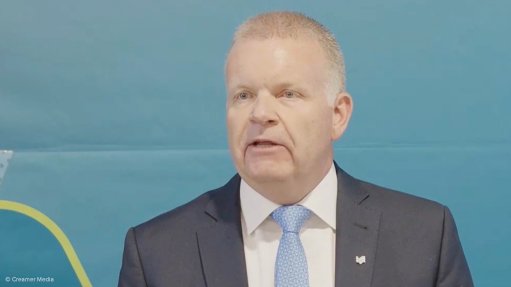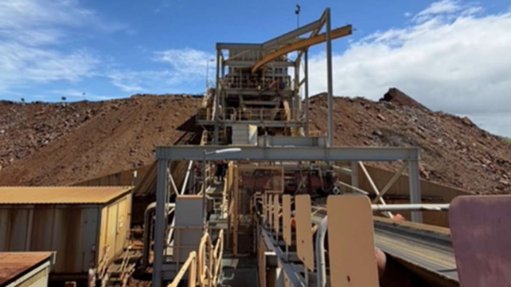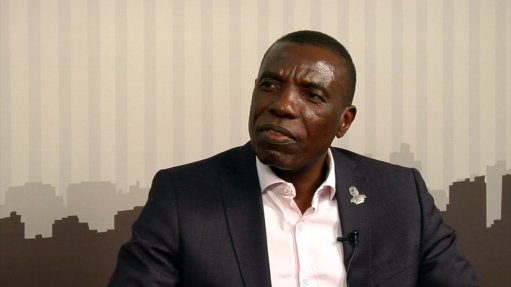Minerals Council backs State capture commission’s recommendations
JOHANNESBURG (miningweekly.com) – Minerals Council South Africa on Thursday endorsed the recommendations of the first report of the Commission of Inquiry into State Capture.
These recommendations, which are aimed at preventing endemic and corrosive corruption in organs of the State and within the private sector, should also be speedily implemented, the council urged.
This plea by the council was made against the background of its members – and the rest of South Africa’s citizens and businesses – having endured the consequences of years of unfettered fraud and corruption within most notably power utility Eskom and rail and port operator Transnet.
“The evidence regarding events at Transnet, Eskom and SAA present a scarcely believable picture of rampant corruption,” Minerals Council South Africa stated.
Bulk commodity exporters had, for example, experienced an opportunity cost of at least R30-billion owing to Transnet’s inability to provide a contracted service to deliver iron-ore, coal, chrome and manganese to the ports.
The reasons given by Transnet include crime on its rail network, which speaks to ineffectual policing on a strategic national asset, and the difficulties to procure spares for locomotives bought in a multibillion-rand programme cancerous with corruption.
The first report from the commission touched on the locomotive procurement project and clearly found irregularities, the consequences of which the mining industry and other exporters and importers are now struggling with daily.
The deliberate inaction of the organs of State intended to uphold the rule of law was of particular frustration, along with the lack of accountability and consequence management over years of wilful neglect, corruption and mismanagement for personal gain of the participants involved.
“We trust the recommendations made in this report, and the others which will soon follow, will result in speedy and appropriate legal and prosecutorial actions taken against those political leaders, government ministers, CEOs and the leadership of state-owned entities, and officials in government departments who caused such egregious damage to the country, its people and its economy through their corrupt activities,” Minerals Council CEO Roger Baxter stated in a media release to Mining Weekly.
“What they did is tantamount to economic sabotage, and they must face the consequences on a much more urgent basis if South Africa is to restore trust and faith in the government and its structures at this very difficult time for the economy. The recommendations in this report will go a long way towards doing that, but we cannot afford to wait much longer. Urgent implementation is key,” said Baxter.
Billions of rands worth of production in the mining industry has been lost since 2008 when the inability of Eskom to provide consistent, competitively priced electricity was in clear evidence. The Commission’s report details the level of malfeasance at the entity.
These opportunity costs have deprived the fiscus of billions of rands that could have been spent on education, health, security, and infrastructure, enabling the creation of strong, capable public and private sector entities that put the interests of people first by fostering inclusive economic growth.
The first report handed to President Cyril Ramaphosa on Tuesday evening by commission chairperson Raymond Zondo made ten clear recommendations that have the support of the Minerals Council.
The Minerals Council urged President Ramaphosa to implement those recommendations with all possible haste to prevent further corruption and maladministration that have become the hallmarks of South Africa. Corruption is one of the key factors preventing vital local and foreign investment that is needed to grow the economy and to stimulate job creation.
The State spends R800-billion a year on procurement of goods and services, making it a ripe source for fraud and corruption. Tighter, smarter controls and mechanisms must be established to ensure this does not happen again to the extent it has in South Africa. Evidence presented at the commission showed a link between the corrupt granting of tenders and political party financing.
The Minerals Council gave unreserved backing to the establishment of a National Charter Against Corruption, which the commission recommended be endorsed by all sectors of society as the first step towards restoring broken trust in the State through the incorporation of a standardised code of conduct adopted by all layers of the government and its entities, political parties, business organisations, listed companies, organised labour and others.
The recommendation goes further in wanting the charter to be given legal status and effect by an Act of Parliament, with all people and companies tendering or contracted to supply the government with goods and services signing an agreement to uphold the charter and its codes of conduct.
The second recommendation of the formation of an independent anti-corruption agency that is free of political interference and appointments and does not rely on ministerial budget allocations or government oversight is a bold – and overdue – step to address fraud and corruption within the government and private sectors.
Funding for the agency would come from a parliamentary allocation, as well as a levy imposed on all public tenders, to fund the work of units engaged in inspections, litigation, court and appeals.
PROTECTION OF WHISTLEBLOWERS
The commission has recommended the protection of whistleblowers, and the introduction of legislation to introduce deferred prosecution agreements along the lines of those in the UK and US to deal with corrupt companies in an efficient way that does not stretch an overtaxed prosecutorial service. Companies that fully cooperate with authorities by self-reporting criminal activities can either pay a fine or are subject to remedial action to defer or avoid prosecution subject to agreement from the tribunal of the anti-corruption agency. However, people who engaged in those criminal activities would still be investigated and prosecuted.
This is a critical and welcome step to address corruption in the private sector, which has flourished in step-time with fraud and corruption within the government,” said Baxter.
The commission’s other recommendations include:
- the creation of a procurement officers’ professional body;
- the enhancement of transparency;
- protection of accounting officers/authorities acting in good faith;
- amending the Prevention and Combatting of Corrupt Activities Act;
- amending the Political Party Funding Act; and
- enacting legislation to centralise public procurement and harmonise procurement legislation.
The Minerals Council expressed opposition to the commission’s tenth recommendation, however, which calls for the centralisation of government procurement. Instead, the council expressed the view that procurement be governed by clear rules and with strict accountability and consequence management, while at the same time, not delaying the procurement of critically required spares in the rail, port and electricity sectors.
Article Enquiry
Email Article
Save Article
Feedback
To advertise email advertising@creamermedia.co.za or click here
Press Office
Announcements
What's On
Subscribe to improve your user experience...
Option 1 (equivalent of R125 a month):
Receive a weekly copy of Creamer Media's Engineering News & Mining Weekly magazine
(print copy for those in South Africa and e-magazine for those outside of South Africa)
Receive daily email newsletters
Access to full search results
Access archive of magazine back copies
Access to Projects in Progress
Access to ONE Research Report of your choice in PDF format
Option 2 (equivalent of R375 a month):
All benefits from Option 1
PLUS
Access to Creamer Media's Research Channel Africa for ALL Research Reports, in PDF format, on various industrial and mining sectors
including Electricity; Water; Energy Transition; Hydrogen; Roads, Rail and Ports; Coal; Gold; Platinum; Battery Metals; etc.
Already a subscriber?
Forgotten your password?
Receive weekly copy of Creamer Media's Engineering News & Mining Weekly magazine (print copy for those in South Africa and e-magazine for those outside of South Africa)
➕
Recieve daily email newsletters
➕
Access to full search results
➕
Access archive of magazine back copies
➕
Access to Projects in Progress
➕
Access to ONE Research Report of your choice in PDF format
RESEARCH CHANNEL AFRICA
R4500 (equivalent of R375 a month)
SUBSCRIBEAll benefits from Option 1
➕
Access to Creamer Media's Research Channel Africa for ALL Research Reports on various industrial and mining sectors, in PDF format, including on:
Electricity
➕
Water
➕
Energy Transition
➕
Hydrogen
➕
Roads, Rail and Ports
➕
Coal
➕
Gold
➕
Platinum
➕
Battery Metals
➕
etc.
Receive all benefits from Option 1 or Option 2 delivered to numerous people at your company
➕
Multiple User names and Passwords for simultaneous log-ins
➕
Intranet integration access to all in your organisation





















